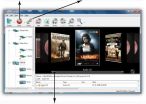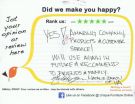November 02, 2012 (Press-News.org) The Internal Revenue Code is notoriously complex, particularly for rules governing business taxes. It is easy for business owners to run afoul of the IRS when trying to calculate and pay its payroll taxes.
All employers are required collect and withhold income and social security taxes from their employees' paychecks. See IRC Sections 3101 and 3102 (Federal Insurance Contributions Act (FICA) taxes), 3401-3406 (income taxes). The employers are also required to file quarterly reports of taxes withheld (IRS Form 941) and to make federal tax deposits (FTDs).
Civil penalties and interest are imposed if the employer fails to file returns or to file them timely or to pay over all or the correct amount of employment taxes. See IRC Sections 6651(a)(1), 6656(a), (b). If the employer who owes these taxes has no assets, the IRS is unable to collect the tax or the penalties and interest from that employer. But despite this fact, the employees still get credit for the amount of income and FICA taxes withheld, even if employer pays never turned over the withheld taxes to the government. See IRC Sections 31, 3102(a). Similarly, where an employer has withheld FICA and withholding taxes but failed to pay them to the IRS, the employee is credited with the amount withheld; and if the government does not recover this tax from the employer or employer's responsible person, the tax is lost. For this reason, the IRS may get especially aggressive in its collection efforts of payroll taxes.
If an employer fails to turn over the withheld taxes to the government, the IRS has the power to impose the Trust Fund Recovery Penalty (TFRP) against certain individuals who are determined to be "responsible persons" of the employer. The amount of the liability is equal to the amount of the delinquent trust fund taxes which consist of the employee's portion of the FICA taxes and all of the withholding taxes. The Trust Fund Recovery Penalty is a collection device; it is a method by which the Internal Revenue Service assesses personal liability against an individual and "pierce the corporate veil" without the necessity of any prior judicial determination.
The determination of whether an individual or individuals will be liable for the Trust Fund Recovery Penalty is a two-part test. The first part is whether the individual(s) is a responsible person, as discussed above, and the second part is whether that person failed to perform the required acts "willfully."
Responsible Person
A person subject to the Trust Fund Recovery Penalty includes "an officer, or employee of a corporation, or member or employee of a partnership, who ... is under a duty to perform the act in respect of which the violation occurs." See IRC Section 6671(b). A person other than a corporate employee or officer may be found to be a responsible person for purposes of the penalty. On the other hand, it is not necessary to assess a Trust Fund Recovery Penalty against a sole proprietor. In sole proprietorships, the individual owners are fully liable for the full amount of the taxes (including non-trust fund taxes), all penalties and interest.
The IRS assesses whether a person was a "responsible person" for paying payroll taxes on a case-by-case basis. The IRS looks at the totality of the circumstances to determine whether a person had the authority in a business to pay taxes. Some of the factors the court considers include whether a person:
- Was an officer, director, principal shareholder, partner or member of the business
- Had signature authority on checks
- Handled payroll disbursements
- Controlled financial affairs of the company
- Determined which creditors were paid or exercised authority to pay creditors
- Controlled the voting stock of a corporation
- Signed employment tax returns
The employees who are performing ministerial tasks without exercising independent judgment are not generally named as "responsible persons" by the IRS. A non-owner employee who is being supervised, and who does not have the authority make independent decisions on behalf of the employer, will not be asserted the Trust Fund Recovery Penalty (TFRP). Likewise, TFRP is not generally assessed against any volunteer members of any board of trustees or directors of a charitable organization to the extent such members are serving in an honorary capacity, do not participate in the day-to-day or financial operations of the charitable organization, and do not have knowledge of the failure on which such penalty is imposed.
Generally, the IRS will not recommend the assertion of TFRP against an individual if sufficient information is not available to demonstrate that he or she was actively involved in the corporation at the time the tax liability was not being paid. However, this general rule does not apply if the individual intentionally makes information unavailable to impede the investigation. The IRS Revenue Officers conduct field investigations to determine the trust fund recovery penalty liability. The determination of who is the responsible person is a question of fact.
Thus, the Revenue Officers generally determine whether the person in question had the authority to decide to what bills should or should not be paid and when. No TFRP should be assessed where the person does not sign checks, or handle payroll or does not participate in the day-to-day activities of the business. On the other hand, the IRS considers the ability to sign checks and the actual signing of the company's checks as a significant factor in holding an individual responsible for TFRP. Simply put, the IRS is determining who, realistically, ran the business and paid bills on behalf of the employer. This is not necessarily the shareholders and it is not necessarily the board of directors. It may be an employee who had a signature authority on the company's bank account and who signed checks on behalf of the company, for example.
Willful Failure to Pay
According to IRC Section 6672(a), the failure to collect or pay over trust fund taxes must be willful. The term "willful" means an intentional violation of a known legal duty. Within the context of IRC Section 6672, it means a voluntary, conscious, and intentional, as opposed to accidental, decision not to pay over the trust fund taxes to the United States. Internal Revenue Manual (IRM) 5.7.3.3.2.
For non-payment of payroll taxes to be willful for IRS purposes, a responsible person must have either:
- Had actual knowledge that the company had not paid payroll taxes and chose not to pay them
- Recklessly disregarded a risk that the company had not paid payroll taxes
The IRS need not prove a responsible party had actual knowledge that the payroll taxes were unpaid. Those who knew or should have known that a business' payroll taxes were unpaid run the risk of liability; those who were merely negligent in paying taxes do not.
Thus, to establish willfulness, "the government generally must demonstrate that a responsible person was aware, or should have been aware, of the outstanding taxes and either intentionally disregarded the law or was plainly indifferent to its requirements. A responsible person's failure to investigate or correct mismanagement after being notified that withholding taxes have not been paid satisfies the TFRP 'willfulness' element." Internal Revenue Manual (IRM) 5.7.3.3.2. The definition of "willfulness" is very loose. For example, the mere payment of net wages (wages minus trust fund taxes) to employees when funds are not available to pay withholding taxes is considered a willful failure to collect and pay employment taxes, as required by IRC Section 6672.
Assessment Process
The IRS Revenue Officer makes the initial determination of liability for the Trust Fund Recovery Penalty. The Revenue Officer will conduct the initial investigation, using the broad power of the Internal Revenue Service summons to receive the employer's bank statements, cancelled checks, and other documentation. The Revenue Office may also interview the appropriate officers and employees of the business and, possibly, creditors to make this determination. The IRS Revenue Officer will determine whether there was a possibility of any fraudulent transfer of assets and any transferee liability.
During the initial interview, the Revenue Officer is required to explain the TFRP and advise the potentially responsible persons that they may be held liable for the withheld portion of the employment tax. In practice, the personal liability is not always clearly explained to the taxpayers, however. This explanation should be made before the "4180 interview" begins. The reference is made to the IRS Form 4180 used by the Revenue Officers during the interviews. This form must be completed during the in-person interview; the RO completes it and the taxpayer reviews and signs it. The taxpayer may also include additional comments that he/she feels were not adequately addressed during the interview. One form should be completed per each taxpayer, and each taxpayer should be interviewed separately from others. That way, the answers of one taxpayer (a husband, for example), are not "imputed" to the other taxpayer (a wife, for instance, who may have had very little to do with the business). The completed IRS Form 4180, along with the other documentation, will be used to establish personal responsibility for the trust funds.
In the event a Trust Fund Recovery Penalty determination is made during the first interview with a potentially responsible person and the penalty is to be proposed, the responsible person should be informed of his or her appeal rights and be given the choice of agreeing to or appealing the proposed assessment. The Revenue Officer may then request that that responsible person sign an agreement form (Form 2751) agreeing to personal liability.
If the taxpayer does not agree to the proposed assessment, he or she will be given an opportunity to contest it. The taxpayer may send any rebuttal information in writing to the Revenue Officer and the Revenue Officer may consider it. No assessment may be made until 60 days after the written notice to the taxpayer. IRC Section 6672(b). Following the Revenue Officer's consideration of the case, a 60-day letter is issued and the taxpayer can argue his or her case at the Appeals Division. The U.S. Tax Court review prior to assessment is not available because the Court's jurisdiction does not extend to employment tax cases. IRC Section 6213(a) Accordingly, no notice of deficiency is sent to the taxpayer, but rather the person will receive a notice and demand that requires him or her to pay the tax within 10 days if a settlement within the Appeals Office has not been made.
Joint and Several Liability
The liability for the Trust Fund Recovery Penalty is joint and several. This means that all responsible persons against whom the TFRP is assessed are totally liable for the full payment of the tax. They are not allowed to apportion a percentage of the tax among themselves and force the IRS to collect a certain portion of the total amount from each responsible person. Moreover, even if the IRS abates the penalty against one person, it may still collect from all other jointly liable responsible persons. However, the IRS may only collect the TFRP once for a business' unpaid payroll taxes. Thus, if one responsible person pays the penalty in full, any other responsible persons do not need to pay that amount.
Freeze on Refunds
If the IRS established a responsible person, and the IRS owes that person a refund or a credit, the Revenue Officers will request a freeze of that taxpayer's account, so that no refund is issued, pending the assessment of TFRP. Essentially, this means that if a responsible person put all his/her funds into a business and the business is failing, and if that person would otherwise be entitled to a tax refund, for example, of his/her personal income tax, that refund would be frozen while the assessment of TFRP is pending and possibly seized by the IRS after the assessment is issued.
Employee or Contractor
In order to for the IRS to be able to assess the Trust Fund Recovery Penalty, the IRS has to show that the company actually had an employer/employee relationship with its workers. If an employer can demonstrate that the worker was an independent contractor, not an employee, then no TFRP may be assessed. For this reason, if a company's representative can successfully argue that the company is not an "employer," then Trust Fund Recovery Penalty cannot be assessed against anyone, even if certain individuals otherwise meet the definition of a "responsible person."
In the course of an employment tax audit, the IRS frequently attempts to reclassify workers from the status of independent contractor to that of an employee. To avoid reclassification, an employer may assert the certain defenses, which are beyond the scope of this article.
Neither negligence nor any fraud penalty may be assessed against a person in the event the Trust Fund Recovery Penalty is assessed. See IRC Section 6672(a).
Consult an Attorney
The IRS makes payroll tax offense cases a priority. In some cases, the IRS does not hesitate to prosecute the responsible persons to the fullest extent of the law. Those who have questions about liability for unpaid payroll taxes should speak with a seasoned tax attorney with broad experience in payroll tax cases. Even if a taxpayer has been named a responsible person by the IRS, generally, that taxpayer has options and amicable solutions that may help solve the issue.
Article provided by Lana Kurilovich Rich, PLLC
Visit us at http://www.mytaxdebtattorney.com
How Does the IRS Determine Responsibility for Unpaid Payroll Taxes?
People should be aware of how the IRS determines a responsible party for payroll tax purposes, what constitutes willful failure to pay and the penalties people face for not paying payroll taxes.
2012-11-02
ELSE PRESS RELEASES FROM THIS DATE:
Prompt Proofing Blog Post: Grammar Tips: I or Me?
2012-11-02
Confused by when to use I and when to use me? You are not alone!
Many people find these pronouns confusing in certain situations. We all know that I is a subject pronoun and me is an object pronoun but there are times when it's easy to lose track of this. Consider the following - which sentences do you think are correct?
1. Why don't you come to the party with my husband and I?
2. Sam and me always vacation in Hawaii.
3. He is taller than me.
4. You should come to the play with Susan and me.
5. Jane and I both love that band.
6. You know her better ...
BMF Wheels Expands Product Line at The 2012 SEMA Show With New F.I.T.E. Wheel Design Also Launches Three New Forged Wheels Made in the U.S.A. MMA Champion Matt Hughes Partners With BMF Wheels
2012-11-02
BMF Wheels, a leader in the aftermarket wheel industry specializing wheels for lifted and leveled trucks, will be releasing three new designs at the 2012 SEMA show in Las Vegas, NV, October 30 - November 2, 2012, in booth number 30205 at the Las Vegas Convention Center. BMF Wheels will be offering the all-new F.I.T.E. design in STEALTH, "Death Metal" Black and PVD (Chrome) finishes. The F.I.T.E. is TPMS sensor compatible and features the company's most intricate machining process to date. The F.I.T.E. is the latest addition to a growing offering of products from ...
Who Do You Think Will Win the 2012 Elections? Vote Expectation Surveys More Accurate in Predicting Election Results Than Opinion Polls, Says willobamaorromneywin.com
2012-11-02
Vote expectation surveys are the untold underdogs story but yet the most accurate of all the five election forecasting methods available: vote intention polls, prediction markets, expert judgment, and econometric models. Just ask the audience at the TV show Who Wants to be a Millionaire. An analysis by the blog asmartbear shows that the studio audience predicted the correct answer 91% of the time compared to 65% of the time by the expert friends. Or even ask the happy investors who invested in cheap index funds like Vanguard which for the most part outperformed the managed ...
Leftover Halloween Candy Earns Bubble Truck Fun and Chance at Nook Color at Ideal Dentistry Offices in Prospect on Nov 5 & Louisville, KY on Nov 8
2012-11-02
Leftover Halloween candy is normally a temptation, an appetite-spoiler or an at-work giveaway. But on Nov. 5, it will be welcome at Ideal Dentistry, 9527 U.S. Hwy 42 in Prospect and on Nov 8 at the new Ideal Dentistry office in Louisville at 4010 DuPont Circle, Suite 469.
The Halloween candy collected at the "Sweet Swap" will be donated to Operation Gratitude to be sent overseas as a treat for the troops. Those donating candy will have the opportunity to write their own thank you to the soldiers who receive it. Attendees will also enjoy the famous Bubble Truck, ...
Dave Lindeen Appointed Senior Vice President of Sales for Corcentric
2012-11-02
Corcentric, a leading provider of Financial Process Automation solutions, today announced the appointment of Dave Lindeen to the role of Senior. Vice President of Sales. Dave has served as Vice President of Corcentric since 2002, leading strategic business planning and sales for the company.
Dave came to Corcentric with 25 years of experience in the transportation industry; a majority of that time with Ryder System, Inc. In his ten year tenure at Corcentric, Dave has been intimately involved in all aspects of the company's growth, including sales, technology investments, ...
FarStone Announces the Release of VirtualDrive 15- The Original & Best CD/DVD/BD Emulation and Burning Software
2012-11-02
FarStone Technology, known for their refined TotalBackup (http://www.farstone.com/software/total-backup-recovery-server.php) and TotalRecovery (http://www.farstone.com/software/totalrecovery-pro.php) software, has released VirtualDrive 15 CD/DVD/BD emulation and burning software. VirtualDrive converts a CD/DVD/BD into a Virtual CD file (VCD), which plays in any one of up to 23 emulated virtual CD/DVD/BD drives. VirtualDrive allows you to emulate, burn, copy, create, and share CD/DVD/Blu-ray electronically.
"We are pleased to announce that VirtualDrive supports Windows ...
Bond & Taylor Warns Consumers that Study Links Actos to Bladder Cancer
2012-11-02
The law firm of Bond & Taylor is warning consumers of a study linking popular type 2 diabetes medication, Actos , to bladder cancer. This newest study, published in the Journal of the National Cancer Institute was contributed by researchers at the Perelman School of Medicine at the University of Pennsylvania. Researchers found that patients taking thiazolidinedione (TZD) drugs such as Actos (Pioglitazone) were two to three times more likely to develop bladder cancer than patients who took sulfonylurea drugs. This is especially disturbing news because TZDs are prescribed ...
Nicaragua's First Luxury Boutique Hotel Soon to Open
2012-11-02
Mukul Resort & Spa, the first luxury boutique hotel in Nicaragua, will open on February 1, 2013 at Guacalito de la Isla, a 1,670-acre, US$250-million low-density, private beach community on Nicaragua's Emerald Coast created by businessman Carlos Pellas.
Mukul will feature 37 spacious accommodations, each with an ocean view, pool and private staff. Other resort amenities include Spa Mukul, with six private spa-treatment casitas, a beach club featuring dining and lounge areas, a swimming pool and an18-hole golf course.
Guests will be able to enjoy access to the ...
Land Under First Building Hit on 9/11 Sold - for $9,000 - - World Trade Center Documents at Auction
2012-11-02
The collection includes the 1808 manuscript selling land under the first building hit on 9/11, for $9,000. Two World Trade Center was built on the filled-in dock from which Robert Fulton's "Clermont" steamboat sailed into history on its maiden voyage, in 1807.
The archive's 1797 deed - signed by George Washington's first District Attorney for N.Y. - sells land within the future footprint of 5 WTC, site of the "Survivor's Staircase" of 9/11, and of the now-flooded PATH commuter station. Its replacement, now called 2 World Trade Center, is rising on ...
Customer Service Techniques: Convenience Has Trained Us to Expect Too Little
2012-11-02
Sadly, in today's e-commerce climate, we have come to expect very little as consumers. While the amount of effort we put into that "hard-earned dollar" is the same, the amount of appreciation of where we spend it has been greatly devalued. It is easy to understand how this happened: the ability and convenience to shop a million stores--all at a mouse click, combined with our attention being grabbed and thrown from paid advertisements to pop-ups. We get that. What is not easy to understand is how, as a society, we have come to accept it.
The term 'customer ...
LAST 30 PRESS RELEASES:
KRICT develops microfluidic chip for one-step detection of PFAs and other pollutants
How much can an autonomous robotic arm feel like part of the body
Cell and gene therapy across 35 years
Rapid microwave method creates high performance carbon material for carbon dioxide capture
New fluorescent strategy could unlock the hidden life cycle of microplastics inside living organisms
HKUST develops novel calcium-ion battery technology enhancing energy storage efficiency and sustainability
High-risk pregnancy specialists present research on AI models that could predict pregnancy complications
Academic pressure linked to increased risk of depression risk in teens
Beyond the Fitbit: Why your next health tracker might be a button on your shirt
UCSB scientists bottle the sun with liquid battery
Lung cancer drug offers a surprising new treatment against ovarian cancer
When consent meets reality: How young men navigate intimacy
Siemens Healthineers and Mayo Clinic expand strategic collaboration to enhance patient care through advanced technology
Physicists develop new protocol for building photonic graph states
OHSU-led research initiative examines supervised psilocybin
New review identifies pathways for managing PFAS waste in semiconductor manufacturing
New research finds state-level abortion restrictions associated with increased maternal deaths
New study assesses potential dust control options for Great Salt Lake
Science policy education should start on campus
Look again! Those wrinkly rocks may actually be a fossilized microbial community
Exposure to intense wildfire smoke during pregnancy may be linked to increased likelihood of autism
Children with Crohn’s have distinct gut bacteria from kids with other digestive disorders
Genomics offers a faster path to restoring the American chestnut
Caught in the act: Astronomers watch a vanishing star turn into a black hole
Why elephant trunk whiskers are so good at sensing touch
A disappearing star quietly formed a black hole in the Andromeda Galaxy
Yangtze River fishing ban halts 70 years of freshwater biodiversity decline
Genomic-informed breeding approaches could accelerate American chestnut restoration
How plants control fleshy and woody tissue growth
Scientists capture the clearest view yet of a star collapsing into a black hole
[Press-News.org] How Does the IRS Determine Responsibility for Unpaid Payroll Taxes?People should be aware of how the IRS determines a responsible party for payroll tax purposes, what constitutes willful failure to pay and the penalties people face for not paying payroll taxes.



